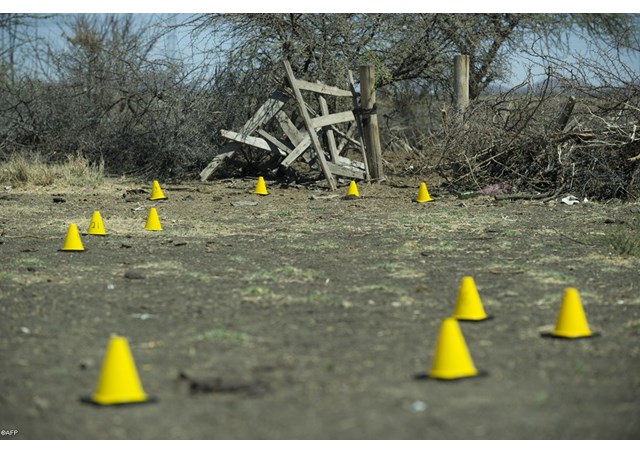
SA’s Bishop Gabuza on lessons from the Marikana massacre

The Justice and Peace Commission of the Southern African Catholic Bishops’ Conference has called for lessons to be learned from the Marikana massacre. This call follows the release, last week, of a report by a commission of inquiry that South Africa’s President Jacob Zuma appointed to look into the Marikana massacre.
On 16 August 2012, the world witnessed shocking television images of South African police firing live bullets on thousands of striking miners at South Africa’s Marikana platinum mine. The mine is situated northwest of Johannesburg. 34 miners were killed and many others were injured.
Media reaction to the South African commission of inquiry chaired by retired judge, Ian Farlam has been one of consternation that not a single person has been held accountable for the massacre. They media also seems to find the report’s language towards Lonmin mine rather mild.
In its reaction to the report, the Justice and Peace Commission of the Southern African Catholic Bishops’ Conference has decried the fact that notwithstanding the Marikana massacre, the structural realities that set the scene for the strike and violent bloodbath in 2012 remain unchanged in South Africa’s mining industry.
In a statement made available to Vatican Radio by SACBC’s Justice and Peace coordinator, Fr. Stan Muyebe, the Bishop of South Africa’s Kimberly Diocese, Abel Gabuza who is also the Chairperson of the Justice and Peace Commission at Bishops’ Conference insists that, “The structural conditions that set the scene for the violent strike and massacre still remain in the mining industry: the widening wage gap between workers and executives; the poor working and living conditions of mine workers; the corporate manipulation of the rivalries between trade unions; weak and over-centralised bargaining forum for labour disputes and lack of an effective mechanism to ensure that the workers are free to exercise their right not to participate in a strike. Still present too are the ineffectiveness of social and labour plans as a mechanism to uplift the lives of mine workers and mine-affected communities. There is also a rising sense of disenfranchisement in the country as a toothless mining charter allows the politically connected few to benefit from mineral wealth at the expense of the mine workers and mine-affected communities,” said Bishop Gabuza.
According to Bishop Gabuza, South Africa’s department of mineral resources needs to take steps to ensure that Lonmin mine implements its housing obligations under the social and labour plans. The SACBC’s Justice and Peace Commission also insists that the department of mineral resources should go beyond the commission’s recommendations and look deeply at the whole set of structural conditions that set the scene for the violent strike and the massacre.
Bishop Gabuza warns, “If these structural issues are not adequately addressed, we shall soon have another Marikana. As a country, if we continue to pursue a brand of mining economy that puts profit before people, we shall have another Marikana,” he said.
In the meantime, the SACBC Justice and Peace Commission has reached out in prayer and solidarity with the families of those who lost their loved ones during and after the Marikana massacre, “Our hearts are with the families who lost their loved ones and are struggling to find healing and closure as they try to make sense of the findings of the Marikana report. There is also a need for healing in the whole country from the culture of structural violence.”
(e-mail: engafrica@vatiradio.va)
| All the contents on this site are copyrighted ©. |


